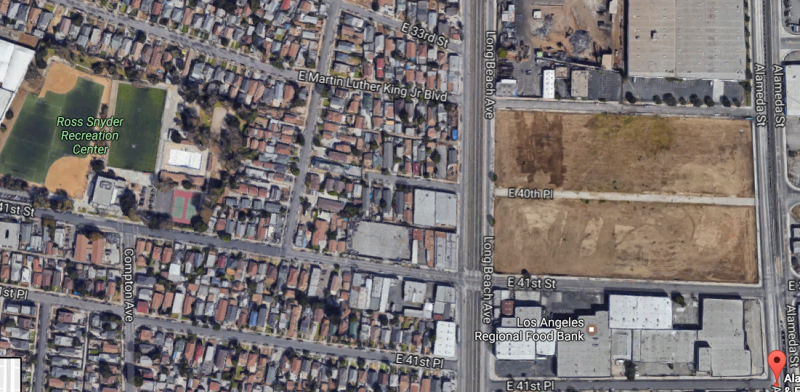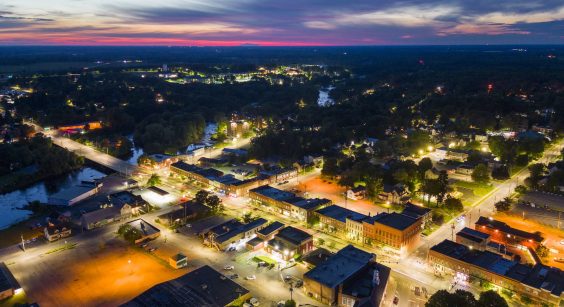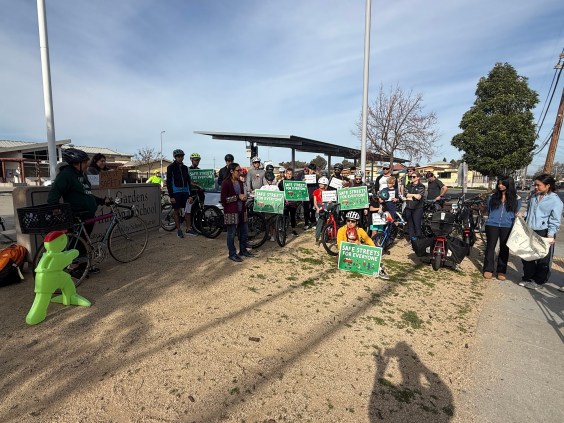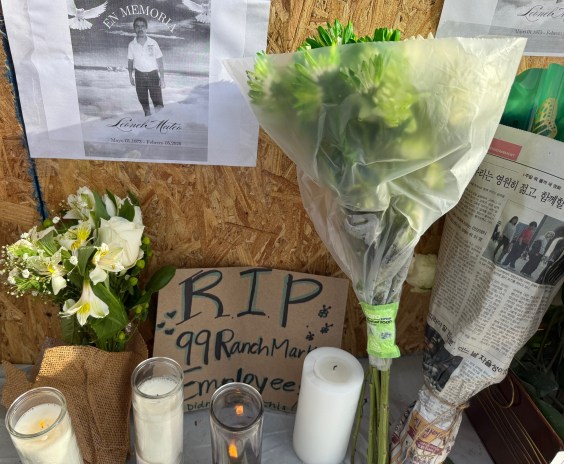At 2:30 p.m. today, after hearing an appeal from Mr. Tezozomoc on behalf of the South Central Farmers, the Planning and Land Use Committee will likely vote to certify the final Environmental Impact Report (EIR) and approve the subdivision of the lot in support of a project proposed for the former home of the South Central Farm.
The proposal for the 13-acre lot located at 4051 South Alameda Street includes the subdivision of the land into four lots, each of which would measure 3.23 acres, and the construction of four industrial buildings (Building 1: 115,973 square feet and 123 parking spaces, Building 2: 133,680 sq. ft. and 79 parking spaces, Building 3: 116,724 sq. ft. and 96 parking spaces, and Building 4: 113,743 sq. ft. and 106 parking spaces). In total, the proposed project would occupy approximately 353,375 sq. ft. of warehouse space, 112,745 sq. ft. of office space, and 14,000 sq. ft. of manufacturing space.
It is not clear exactly who or what will occupy the new spaces once they are built. A presentation from Urban Design Center on PIMA Alameda Partners, LLC, and PIMA's own history in the garment industry suggest the area can expect to see garment and other light manufacturing move in.
The project will likely move forward unopposed.
A November city planning staff report categorically rejected the prior appeals made by Tezozomoc regarding the extent to which the EIR adequately examined environmental impacts to the area. It also declared in no uncertain terms that, despite the fact that the land had once hosted a garden, the reversion of the space to a garden or recreational area "did not satisfy the project objectives." Essentially declaring the question about community usage of the lot dead once and for all, the report notes that the city council had determined that PIMA's cash payment of $3,573,365 (to help fund improvements at Pueblo del Rio housing projects, Fred Roberts Park, and Ross Snyder Park) served as a suitable trade for the 2.6 acres of greenspace on the lot the community had once been promised.
When the project is finally approved by the full council in the next few months, it will mark the end of a contentious chapter in the city's relationship with the more than 350 mostly low-income Latino families that once relied on the South Central Farm for sustenance, stress relief, cultural connections, and community.
The Los Angeles Food Bank (which sits adjacent to the lot) founded the farm in the wake of the 1992 unrest, as a way to do something positive for a traumatized community that had few healthy options at their disposal.
At the time, the land was city-owned. Back in the 1980s, the city had acquired the property from developer Ralph Horowitz for $5 million in the hopes of building a trash incinerator on the site. After community activists, led by Juanita Tate, put the kibosh on the city's plans in 1987, the land lay fallow until the Food Bank was allowed to lease it for the farm. Farmers paid $12 a month for waste removal and portable toilets and signed on with the explicit understanding that the land could be taken away from the gardeners at any time.
In 1994, the city finally sold the land to the Harbor Department for the Alameda Corridor development effort. Because little of the site ended up being needed for that project, the Food Bank and the rapidly growing farming community were allowed to continue their work there.
Horowitz was far less pleased with this development. Arguing that he should have had first dibs on the land once the city's incinerator plans were thwarted, he sued the city. The land was transferred back to Horowitz during a private meeting in August of 2003, on the condition that 2.6 acres of the site would be turned back into a community-accessible park and that Horowitz would pay almost $3 million to support local parks and housing.
The following month, the Food Bank was informed that they would be receiving official 30-day notices to abandon the property by December 1, 2003.
The farmers launched various legal appeals, built a grassroots support base, and worked to raise the funds to buy the property from Horowitz outright. But after the California Supreme Court declined to hear the case, negotiations to buy the property failed, the community organizers who had fought the incinerator project clamored to see the farmers ousted so industry and jobs could be brought in, and an aggrieved Horowitz himself declared to the Los Angeles Times that he wouldn't have sold the farmers the property, even if they had managed to raise $100 million, the farm was finally bulldozed in 2006.
Eventually, the farmers went on to work in new garden spaces, either deeper in South Central (at 110th and Avalon) or in Buttonwillow, 100 miles outside Los Angeles.
The space itself remained has remained blighted, lifeless, and off-limits to the community ever since.
The agenda for today's hearing can be found here. If you'd like more background on the farm, visit their co-operative website, facebook page, or website for the documentary film, The Garden.






